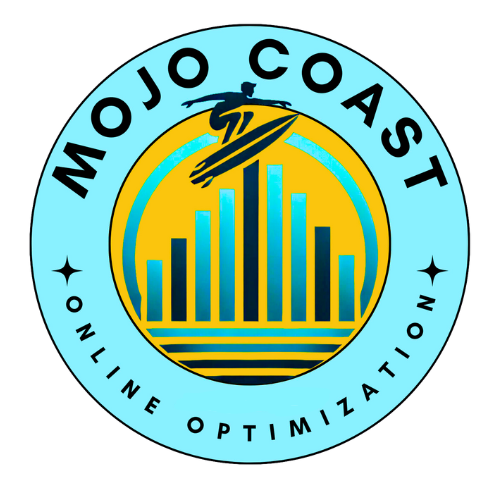Having a website in today’s digital age is not enough.
If your website isn’t optimized for search engines, you’re missing out on a ton of potential visitors, leads and ultimately revenue in the competitive game of digital marketing. Search Engine Optimization (SEO) is the key to making your website visible, accessible and valuable in the increasingly competitive online world. Master technical SEO to prevent crawling and indexing issues that could harm your website rankings. But do you really need SEO for your website? The short answer: yes. Here’s why. The #1 result in Google’s organic search results has a 27.6% CTR, so ranking high in search results matters.
1. What is Search Engine Optimization and Why is it Important?
Search Engine Optimization (SEO) is the process of making a website visible and ranking on search engine results pages (SERPs) through various techniques and strategies. In simple terms, SEO is making your website more attractive to search engines like Google, Bing and Yahoo. Technical SEO is the configurations to make search engine crawlers work, to prevent crawling and indexing issues that could harm your website rankings. When done right, SEO makes your website show up higher in search results for relevant keywords and phrases so your target audience can find you. The #1 organic result on Google is 10x more likely to get clicks than the #10 spot, so effective SEO matters.
SEO is important. In today’s digital world where millions of websites are competing for attention, SEO is key to standing out. By optimizing your website for search engines, you increase your chances of being in the top search results which can lead to more traffic, higher credibility and ultimately more conversions. SEO is not about getting any traffic; it’s about getting the right traffic – users who are actively searching for what you offer. This targeted approach can boost your online presence and drive more sales.
1. More Website Traffic
One of the main reasons to invest in SEO is to get organic traffic to your website. Google Ads can get you traffic fast through paid campaigns but SEO gets you long term visibility without ongoing costs. Google and other search engines process billions of searches every day. A well optimized website ensures when potential customers search for products or services related to your business, your website shows up in search results. But SEO takes time to work and new websites can take 3-6 months to rank on Google. Doing your own SEO means you have to give up something else to do because of the time commitment so you have to weigh the effort against the benefits.
Without SEO your website is just another needle in the digital haystack. Optimized content, keyword targeting and technical improvements help search engines understand your site, rank it higher and attract users who are actively searching for what you offer. But half-hearted SEO efforts can be worse than not doing it at all because they may produce poor results and waste resources.
2. Builds Credibility and Trust
Search engines prioritize websites that provide a great user experience. SEO involves optimizing your site structure, improving page load speed and ensuring mobile-friendliness – all of which improve user experience and build trust. Also 76% of smartphone users who searched for something nearby visited a business within a day and 28% of searches for something nearby resulted in a purchase so local SEO and mobile optimization matters. Additionally appearing on the first page of Google search results signals authority. Consumers inherently trust Google’s top search results more than paid ads or lower ranked pages. If your website consistently ranks well, users are more likely to view your business as credible and trustworthy.
3. Cost Effective SEO Strategy
Compared to paid advertising, SEO is a long term cost effective solution. Paid ads get you traffic fast but stop working the moment you stop paying. SEO on the other hand keeps driving organic traffic long after your initial investment. But SEO can be costly, agency fees range from $500 to $10,000 per month depending on services so businesses have to evaluate their budget and goals before committing.
Once your site ranks well for high value keywords you can get consistent traffic without ongoing advertising expenses. Over time this reduces customer acquisition cost and improves return on investment (ROI).
4. Competitive Advantage
Your competitors are likely doing SEO and if you’re not you’re already behind. Adding off-page SEO techniques like building high quality backlinks can further boost your competitive advantage. A strong SEO strategy helps you keep up with or even beat competitors in search rankings.
By optimizing your website with high quality content, targeting relevant keywords and building authoritative backlinks you can outrank competitors and capture more of your industry’s online audience.
5. Better User Experience with Technical SEO
SEO isn’t just about ranking higher in search engines – it’s about providing a better experience for your visitors. A well structured website, clear navigation, fast-loading pages and mobile optimization all contribute to a seamless user journey.
Search engines favor websites that prioritize user experience. The more user friendly your site is the lower your bounce rate and the higher your chances of converting visitors into customers.
6. Local SEO and Global Reach
SEO allows businesses to target local and global audiences. Local SEO ensures your business appears in location based searches making it easier for nearby customers to find you. This is especially important for small businesses and brick-and-mortar stores. Setting up a Google Business Profile can further improve your local visibility and help you connect with potential customers in your area. Hiring professionals can alleviate the workload of SEO so you can focus on other priorities.
For businesses with broader markets, SEO strategies like content marketing, multilingual SEO and international keyword targeting can help you reach beyond local boundaries.
8. Essentials of SEO
– Keyword Research for Effective SEO
Keyword research is the foundation of effective SEO. It involves identifying and selecting the most relevant keywords your target audience is using in their search queries. By knowing what your potential customers are searching for you can tailor your content to meet their needs and improve your chances of ranking higher in search engine results.
Start by brainstorming a list of relevant keywords and phrases related to your business. Analyze your competitors’ keywords to see what’s working for them. Use keyword research tools like Google Keyword Planner, Ahrefs or SEMrush to find high traffic keywords with lower competition. Long-tail keywords which are more specific and less competitive often have higher conversion rates and can be a goldmine for driving targeted traffic.Having a keyword strategy that aligns with your business goals and target audience is key. Incorporate these keywords naturally into your website’s content, meta tags and other elements to increase your search engine visibility and drive more qualified traffic.
– On-Page SEO: Optimize On-Page Elements and Create Relevant, High-Quality Content
On-page SEO is all about optimizing individual web pages to rank higher and earn more relevant traffic in search engines. This involves fine tuning various on-page elements to make your site more appealing to both search engines and users.
Start with your page titles and meta descriptions, make sure they are compelling and include relevant keywords. Use header tags (H1, H2, H3 etc.) to structure your content and make it more readable. High quality, relevant content is the backbone of on-page SEO. Research thoroughly on your topic, write engaging and informative content and use keywords naturally.
Image optimization is also important. Use descriptive file names, alt tags and captions to help search engines understand your images. Internal linking and anchor text can improve navigation and help distribute page authority across your site. Make sure your website is mobile friendly and loads fast as these factors impact user experience and search engine rankings.
Regularly updating and refreshing your content keeps it relevant and can improve your search engine performance over time.
– Avoid Duplicate Content for Better Search Engine Rankings
Duplicate content can harm your SEO efforts. It confuses search engines and can lead to lower rankings. This includes duplicate pages on your site, copied content from other sources and thin content that adds little value.
To avoid duplicate content focus on creating unique, high quality content that provides real value to your audience. Use tools like Google Search Console and SEMrush to identify and fix any duplicate content issues on your site. By having original and valuable content you can improve your search engine rankings and provide a better experience for your users.
9. Off-Page SEO Strategies
– Link Building for Increased Online Presence
Link building is an off-page SEO strategy that involves getting high quality backlinks from other websites. These backlinks are votes of confidence that signal to search engines that your site is trustworthy and authoritative.There are several link building strategies to consider. Guest blogging allows you to share your expertise on other sites and earn backlinks. Creating linkable assets like in-depth guides or infographics can attract links naturally. Broken link building involves finding broken links on other sites and suggesting your content as a replacement.
Reviews and testimonials can also generate backlinks, as can social media and influencer marketing. When building links, prioritize quality over quantity. Get backlinks from reputable, relevant websites to increase your online presence and search engine rankings.
Always follow Google’s guidelines on link building to avoid penalties and ensure your SEO is sustainable and effective.
7. SEO Adapts to Changing Trends
Search engines update their algorithms to improve user experience. SEO is an ongoing process that evolves with these changes. If you invest in SEO you will stay ahead of industry shifts and continue to benefit in the long run.
Without SEO your website risks losing visibility, traffic and relevance over time. Keeping up with SEO best practices ensures your website remains competitive in an ever changing digital landscape.
Conclusion: Is SEO Really Necessary?
The answer is yes. SEO is not an optional add-on – it’s a necessity for online success. Master technical SEO to prevent crawling and indexing issues that can negatively impact website rankings. Whether you are a small business, e-commerce store or a multinational corporation, SEO helps you get visibility, attract quality traffic and boost conversions.
Ignoring SEO means leaving money on the table while your competitors dominate search results. Investing in SEO today lays the foundation for long term growth, brand credibility and a steady stream of organic traffic in the future.
If you haven’t optimized your website yet, do it now. The sooner you invest in SEO the sooner you will see tangible results.

